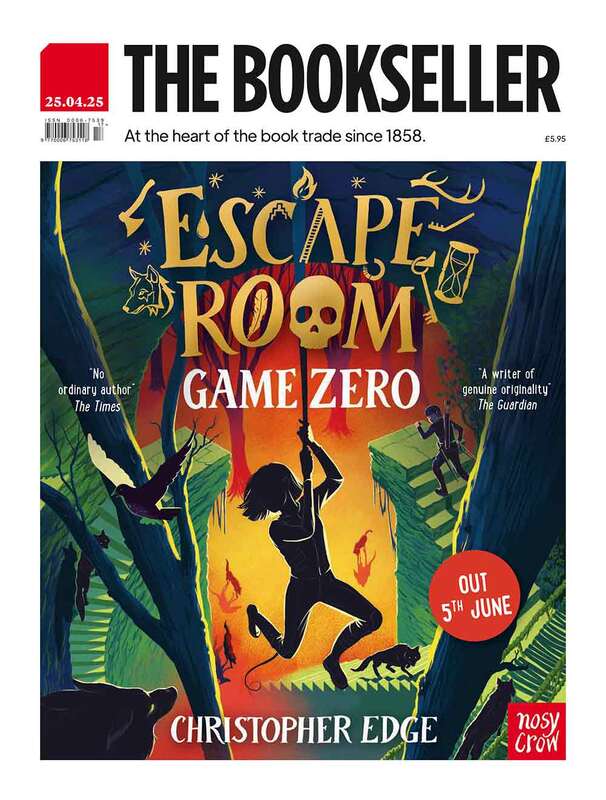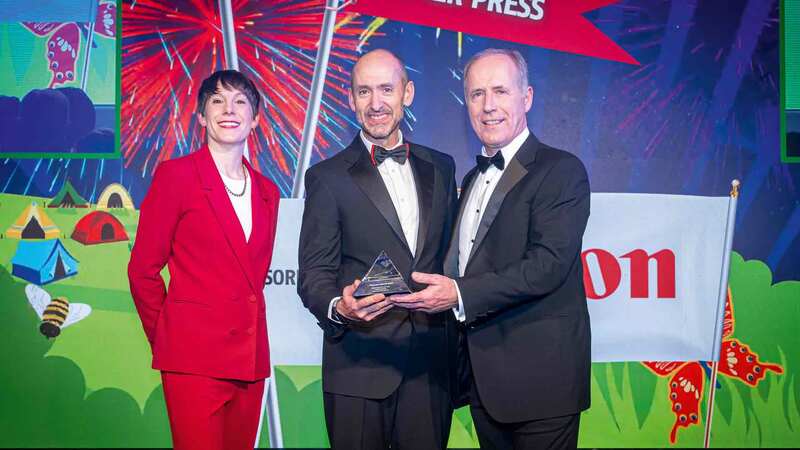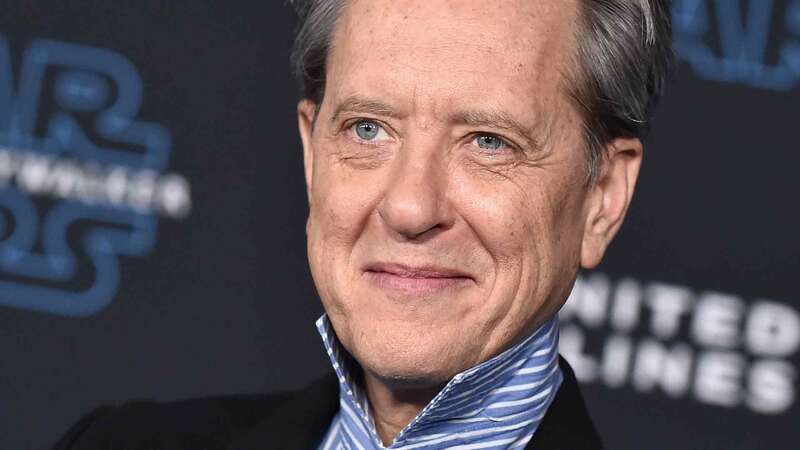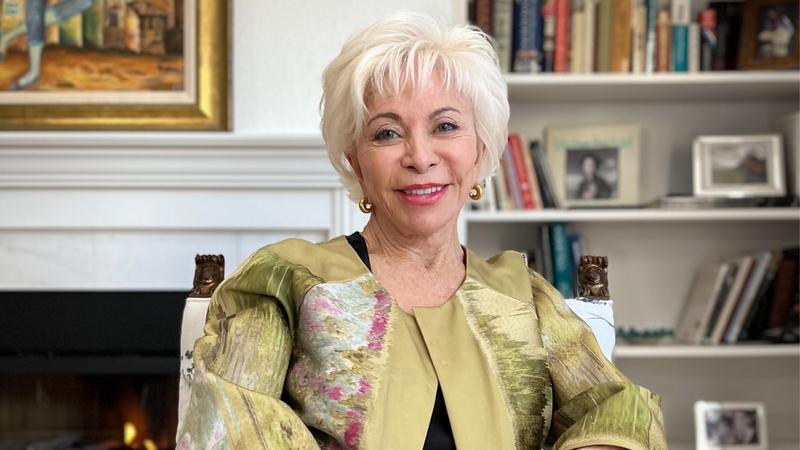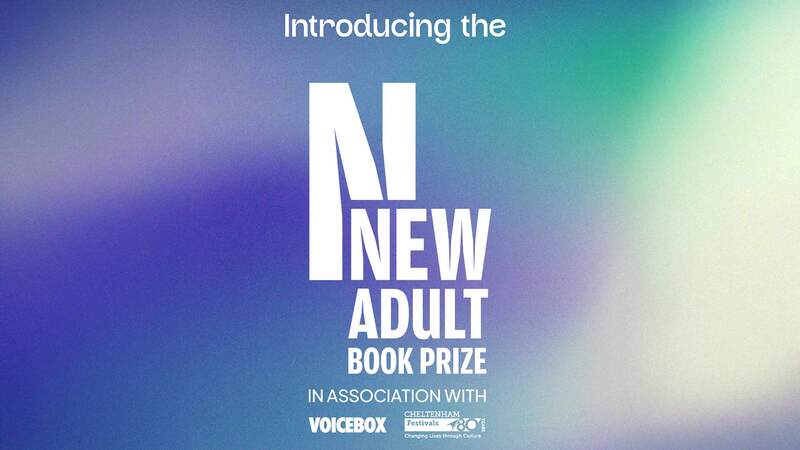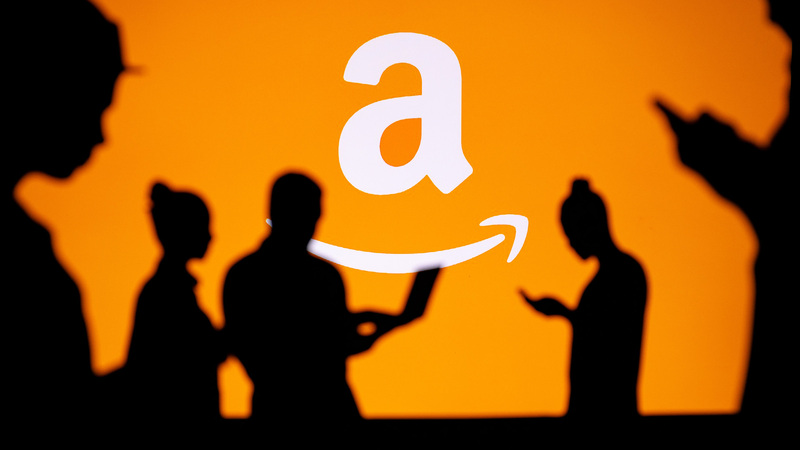You are viewing your 1 free article this month. Login to read more articles.
Amazon under fire from PA president Redmayne
The Publishers Association's new president, HarperCollins' c.e.o. Charlie Redmayne, has criticised Amazon as "a powerful engine for copyright infringement". While applauding the European Commission's past probes into its practices, he warned "dominant tech firms whose discriminatory and abusive practises go unchecked have the potential to do enormous damage to the economy".
Redmayne made the comments in a speech at the PA's a.g.m. on Wednesday evening (25th April), where he pledged to prioritise "copyright, competition and opportunity" during his presidency. He takes over from outgoing president, Hodder Education m.d. Liz Tribe. Peter Phillips, c.e.o. of Cambridge University Press, was elected PA vice president.
The UK is due to officially leave the European Union on 29th March 2019 and Redmayne said he planned to work with the PA during his tenure to ensure leaving Europe did not mean abandoning the defence of copyright and fair competition. He will also support the PA in telling the story of the "unique value" the industry brings to the economy, worth £5.1bn per year, he said.
On copyright, Redmayne will argue for the UK to adopt a national exhaustion regime, as opposed to an international exhaustion regime, which has seen some non-EU countries incur problems around parallel imports.
One of the "powerful" reasons for advocating a national exhaustion regime is Amazon, he said, arguing the retail giant was "pushing boundaries and testing publishers' resolve to enforce their copyrights", particularly with the rolling out of its "global store" which allows unauthorised US editions to be sold in the UK, evidenced by the launch of its international shopping app last week.
"We already face a global retail platform, in Amazon, that is pushing boundaries and testing publishers’ resolve to enforce their copyrights. Amazon’s so-called ‘global store’ allows unauthorised US editions to be sold in the UK. This is only the first step as we saw by the launch, only last week, of its tailor-made international shopping app. It has also failed to prevent the sale of pirated editions at scale through its market place around the world. Amazon has thereby proven itself a powerful engine for the infringement of copyright," he said.
"The result of unchecked erosion of copyright and any changes in the law that hasten it would be to reduce investment in UK publishing, to the ultimate detriment of consumers, authors, agents, booksellers, publishers and the broader economy with the resultant loss of jobs."
On competition, Amazon was again in the firing line. Redmayne welcomed the European Competition Commission's "tough approach" in recent years and challenged the UK government to keep pace, highlighting the EC's role in 2017 securing an end to Audible and Apple's exclusivity agreements for audiobooks and getting Amazon to remove its controverisal "Most Favoured Nation" (MFN) clauses from e-book contracts.
"The onus is on the UK government and the Competition Markets Authority (CMA) to demonstrate they can take as bold a line at a national level as the EU has at a supranational level," said Redmayne.
"When discriminatory and abusive practises from dominant technology firms go unchecked they have the potential to do enormous damage to consumers and to the economy, and the PA must be clear on this point with government and the CMA."
He also said the CMA "must be prepared to prevent unfair promotion of technology platforms' own products and services over those of third parties".
Redmayne rounded off his speech by reaffirming his and the PA's commitment to literacy and to diversity.
The industry remains "predominantly middle class and London centric", he said, saying social and regional diversity must be tackled. "We must now attract a pipeline that comes not only from London and the south east - and we must do so by breaking down the twin barriers of geography and opportunity," he said.
Redmayne also called for the industry to collectively sign up to "The Literacy Project" which works with the government to identify literacy "cold spots" and focuses efforts into "clearly defined target areas" to better utilise publishing’s best assets.
Responding to the accusation of copyright infringement, Amazon defended both its Global Store and its record on the sale of counterfeit (pirated) books through its third-party marketplace. On the Global Store, it said: "Amazon has proactive processes in place to identify and remove US editions of books from sale on Amazon.co.uk where the sale of that US edition would infringe the rights of the publisher of a local edition of the same book. We also have an established process which enables third parties including rights holders to provide us with notice of infringements or non-compliant products. We respond rapidly to any such notice.”
On "counterfeit" goods, it issued a lengthy statement, saying: "Our customers trust that when they make a purchase through Amazon’s store—either directly from Amazon or from one of its millions of third-party sellers—they will receive authentic products, and we take any claims that endanger that trust seriously. We strictly prohibit the sale of counterfeit products and invest heavily—both funds and company energy—to ensure our policy against the sale of such products is followed. Our global team is available 24 hours a day, 7 days a week to respond to and take action on reported violations and notices of potential infringement."
Amazon invests in machine learning and automated systems to detect "bad actors and potentially counterfeit products", with "dedicated teams of software engineers, research scientists, program managers, and investigators to operate and continually refine our anti-counterfeiting programme," the online giant said. It encourages rights owners with product authenticity concerns to notify it and permanently removes bad actors for selling on Amazon. "Amazon investigated and took action on 95% of all notices of potential infringement received from Brand Registry within eight hours," it added.
Noting that it also worked with other marketplaces, governments, and industry coalitions to combat counterfeit products, Amazon concluded: "Counterfeit is an age-old problem, but one that we will continue to fight and innovate on to protect customers, brands, and sellers."
Also present at the PA's a.g.m was BBC broadcaster Andrew Neil, who offered his views on Brexit and on the publishing industry. Taking a dim view of the trade, he said it often appeared from the outside as though it was still "in the dark ages".
"From the ouside publishing still seems to be in the dark ages and not fully in the 21st century," he said. "For too many people publishing is a lifestyle and not a business. For the life of me I don't know why you pay the advances you do and never earn back. You are about to find out, as we did, that there isn't a conflict between print and digital. An educated audience will want to read the book online because they want it right away ... and the convenience. But no educated civilised person can be educated or civilised if you don't have books on bookshelves."

